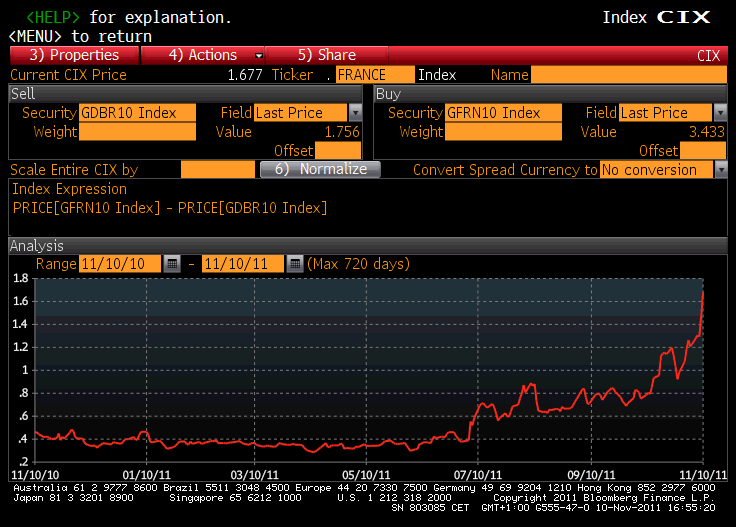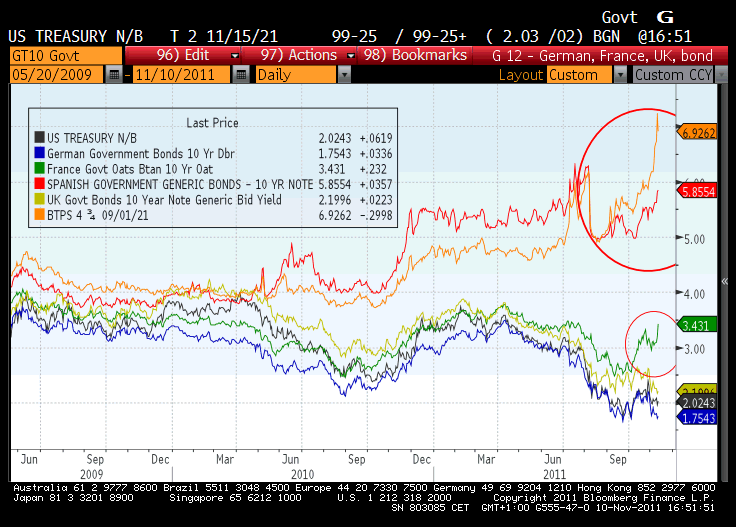One of the more interesting developments in Europe over the years has been the extreme divergence in the bonds across the region. Germany has typically been referred to as the “safe haven” with France running a close second. This is simple to justify. These economies remain the largest and strongest in the region. They’re also in the driver’s seat when it comes to this whole crisis so the odds of one of these nations defaulting is extraordinarily low.
But an interesting divergence has occurred in the last few weeks. French bonds are starting to drift away from Germany’s bonds. This can best be seen in the following two charts which show the developments over the last few weeks. Figure 2 also contains the bonds of two notable currency issuers – the USA and UK. As you can see, Germany’s bond yields have moved down in lockstep with those of the currency issuers.
Obviously, sovereignty matters a great deal in the Euro crisis. After all, the lack of sovereignty is the reason why these countries can “run out” money in the first place. But why does Germany fit into this neat little box if they’re not sovereign in the Euro? And does the deteriorating situation in France make it clear that Germany is also at risk? Personally, I don’t think any European bond markets can be fully trusted. Without sovereignty, there is no such thing as a risk free bond in the region. This doesn’t mean I believe France and Germany will default. In fact, I think that’s out of the question. The markets are voting with their money on the nation that they perceive as the strongest of the lot within the EMU. But the lack of sovereignty issue makes them all vulnerable to sudden spikes in yields at the whim of a sentiment change in Europe.
So, not to belabor the point, but I feel that 10 year German Bunds are an absolutely atrocious deal at 1.78%. This doesn’t mean the risk of default is on the table, but the simple fact that default is a risk at all makes these bonds infinitely more risky than, for instance, a US 10 year note at 2.05%. In sum, the term “safe haven” in Europe appears to be a bit of a misnomer in my opinion. Nothing is safe as long as this wretched monetary system continues to exist in its current format.

German/French bond spread

Mr. Roche is the Founder and Chief Investment Officer of Discipline Funds.Discipline Funds is a low fee financial advisory firm with a focus on helping people be more disciplined with their finances.
He is also the author of Pragmatic Capitalism: What Every Investor Needs to Understand About Money and Finance, Understanding the Modern Monetary System and Understanding Modern Portfolio Construction.

Comments are closed.